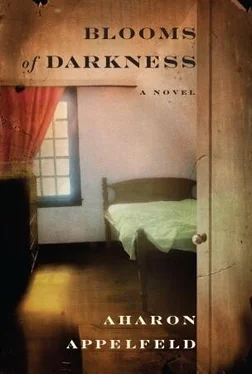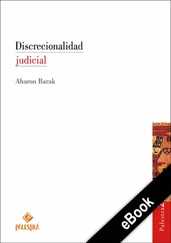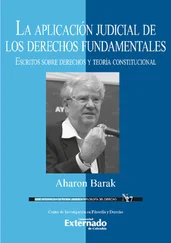“We’re Communists. We do everything because of our faith,” he says, rejecting her request.
They reach the outskirts of the city, and Hugo immediately recognizes the area. The place is full of poplars; they appear in every yard and on every sidewalk. His father had a Ukrainian childhood friend there, a man whom they would sometimes visit on their way home after a walk along the river.
All of a sudden shouts are heard, shouts that shatter their tranquility. At first they sound to Hugo like expressions of wonder or condolence, but soon it becomes clear that they are the sounds of fury before an attack. In no time at all they are showered with stones. Mariana hugs the suitcase, trying to protect her face. The guards grin. “The people have recognized you. How do they know you?” one of them asks, hoping to provoke her.
“They’ve gone crazy,” replies Mariana, as though it didn’t concern her.
They walk on in the green tranquility of spring. What happened to them a few minutes ago now seems like an unrelated outburst, and Mariana repeats her request. “Leave me be. Let me go home.”
“To what home?”
“My mother died. I’ll go to my sister’s.”
“Your sister won’t be happy to see you.”
“How do you know?”
“We spoke to her at length.”
“My sister is subject to moods.” Mariana tries to dismiss the unfavorable impression.
But when they emerge from a long, quiet alley, people once again recognize Mariana and throw stones at her. This time the guards are quicker and they shout at the stone-throwers to stop. When that doesn’t work, they fire shots into the air. Then it stops immediately.
“You did well,” says Mariana, breathing a sigh of relief.
They aren’t far from the headquarters. Mariana keeps muttering, but the guards don’t respond. They are tense, and if anyone dares to throw a stone or blunt object at them, a guard threatens the person with his gun. It’s apparently important to them to bring Mariana to the headquarters neither beaten nor wounded.
In the months that follow Hugo will think a great deal about that painful trip. He will try to remember everything that was said and everything that was implied. Mariana knew what awaited her. She tried to get herself out of it, but everyone was against her, and not even her courage helped her.
Even now, her self-control and her tall beauty do not escape Hugo’s eyes. Not even humiliation dampens her bright expression. “God, protect Mariana,” Hugo says, and he feels his knees go weak. Meanwhile, they arrive at the headquarters.
“We’re here,” says the man with the pistol, pleased that he has succeeded in bringing the captured woman to the entrance of the cage.
Mariana puts the suitcase on the ground. “Watch this, honey,” she says. “I’ll be back soon. Don’t go anywhere.” She kisses Hugo’s forehead. Then she walks unhurriedly toward the low gate, bends down to walk through it, and disappears.
Hugo stands there without moving. This is his city. He knows its streets and alleys. He has even passed through this not-very-splendid area a few times. He looks for someone familiar, but he sees only Russian soldiers dressed in long winter coats. Peasants carry firewood on their shoulders, and hungry dogs roam the streets.
An hour passes, and Mariana doesn’t return. The thought that she is being interrogated about her connections with the Germans, that she will be accused of treason, hits home to Hugo only now. As though through a veil, he remembers her shouts and weeping when they would abuse her at night, and Madam’s threats in the morning. He didn’t absorb these details then. Now, as he stands alone next to the guard at the gate, expecting her to come back, it’s as though the riddle has been stripped of its clues.
After standing for two hours, Hugo gets tired. He sits down on the ground and opens the suitcase. To his surprise he finds a little more cheese and bread. He eats, and his hunger abates. When he looks up, he sees the cook Victoria, accompanied by two guards. Her appearance stuns him, and he wants to approach her, the way one approaches a familiar person in an unfamiliar place. But then he remembers that she didn’t like him and claimed he was endangering the women in The Residence.
“What do you want from me?” she asks one of the guards.
“At headquarters they’ll explain everything to you,” he replies impatiently.
“I’m not a young woman anymore,” she says, and smiles.
The street fills with local people. The refugees stand out in their long, tattered coats.
“Who are you?” one of them asks Hugo.
“My name is Hugo.” He doesn’t conceal the fact.
“Are you Hans and Julia’s son?”
“That’s correct.”
“Come to the square. They’re giving out soup,” the man says, and goes away.
That sudden attention and the mention of his parents’ names help to lift Hugo from the dread in which he was mired. Now his father and mother appear before him — not as refugees who dash about in panic through the streets, but walking slowly, as if they were going to meet friends in a café.
One after another, the women from The Residence are brought to the headquarters. They are accompanied by guards and greeted by shouts of contempt. Even Sylvia, the old cleaning woman, is brought in. Astonishment freezes her small, wrinkled face. This is a mistake , she seems to be saying. I’m old, I was just a cleaning woman . The guards don’t say anything. They stand tensely with the detainees in front of the locked gate. The women are crammed together in front of the gate, making it possible for the mob that has gathered to express its vindictive joy. That vulgar satisfaction is expressed not only in shouted insults but also in obscene gestures. The guards do nothing to silence the crowd.
It’s good that Mariana has already gone in and was spared all this , Hugo thinks to himself.
Hugo recognizes most of the women, but not by name. As always, Kitty stands out. Her face is also full of surprise. Here she looks more like a child than she did in The Residence, and her perplexed eyes keep asking, What is the reason for this uproar?
The arrested women express neither resentment nor resistance. They are just surprised that the gate won’t open. If it opened, they would be saved from the curses and contempt that fall upon them from every direction. Hugo approaches and gets a better look at the women: they are still pretty, and some of them remind him of Mariana. But as a group they appear miserable and abandoned.
Hugo wants very much to say something to them, but the burly guards don’t let anyone come close enough. Things continue that way for a long while, and at times it seems that the women will simply stand there until they are released. One of them, a tall woman who closely resembles Nasha, the one who drowned, turns to the guards and asks, “How long must we wait here?”
“It doesn’t depend on us.”
“Then on who?”
“On the camp commander. He calls the shots.”
Suddenly Masha approaches, escorted by two guards, and all eyes turn to her. It’s as if she were not their companion in suffering but a savior. The women nearby hug her, and the ones farther away reach out and touch her. “There’s nothing to worry about,” she says. “We won’t hide a thing. We’ll say openly, we were forced. If we hadn’t obeyed, our fate would have been like that of the Jews.”
“True,” the trapped women agree.
“Both Victoria and Sylvia will testify that we were forced, and if Madam is against us, we’ll say explicitly that she was the collaborator, not us.” So she stands and prepares the collective defense brief. Her resolute words apparently make an impression on the crowd, because they stop cursing, and among the arrested women there is slight relief. Evening falls, the gate opens, and the women are taken inside. The gloating people scatter and go their way. A sudden silence falls on the place.
Читать дальше












